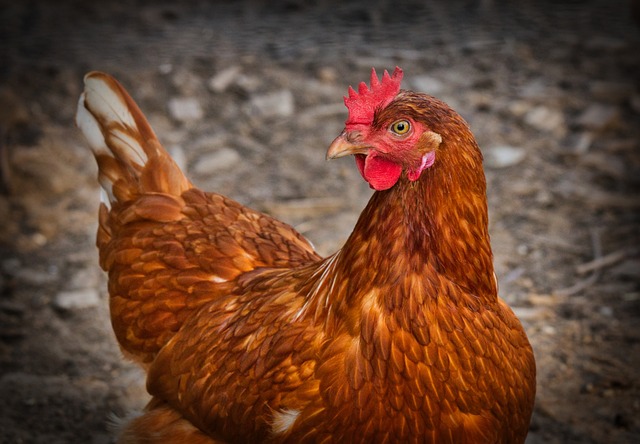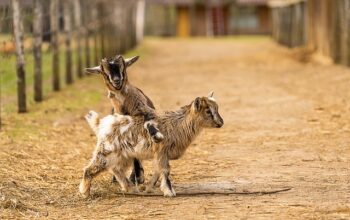In large-scale agriculture, robust fencing is vital for protecting crops from wild animals, containing livestock, and preserving land integrity. Choosing the right farm fence (e.g., chain link, wooden, electric) based on specific needs ensures effectiveness and efficiency. Regular maintenance extends fence lifespan while enhancing safety and productivity. Well-designed fences optimize resource utilization, reduce crop damage, save costs, enhance aesthetics, and contribute to sustainable agricultural practices, appealing to customers valuing organized farming.
In the pursuit of sustainable and efficient agricultural practices, securing large-scale farming operations with robust fencing has become paramount. This article explores the multifaceted role of fences in modern agriculture, delving into the types of fences best suited for expansive landscapes, implementation strategies, and the significant benefits they offer. Discover how well-designed farm fences enhance productivity, protect investments, and contribute to thriving agricultural projects.
- Understanding the Need for Secure Fencing in Agriculture
- Types of Fences Suitable for Large-Scale Farming Operations
- Implementing and Maintaining Farm Fences: A Comprehensive Guide
- The Benefits of Well-Designated Fencing for Efficient Agricultural Projects
Understanding the Need for Secure Fencing in Agriculture
In the realm of large-scale agriculture, securing farm boundaries is paramount. A robust fence for farms isn’t just an aesthetic addition; it’s a vital component that safeguards crops from wild animals, protects livestock from straying, and maintains the integrity of agricultural projects. Effective fencing offers a sense of security, enabling farmers to manage their land efficiently without constant worry about potential damage or loss.
When considering a fence for farms, durability and functionality should be at the forefront. Modern farming practices demand robust solutions that can withstand varying weather conditions, extreme temperatures, and potential environmental stresses. A well-designed fencing system contributes to the overall success of agricultural endeavors by promoting plant growth, enhancing animal welfare, and ensuring the sustainability of farm operations.
Types of Fences Suitable for Large-Scale Farming Operations
When it comes to large-scale agricultural projects, choosing the right fence is essential for protecting crops and livestock while ensuring efficient land management. The ideal farm fence should be durable, cost-effective, and capable of withstanding harsh weather conditions. Some popular options include chain link fences, which offer excellent visibility and are suitable for enclosing large areas, making them a top choice for many farming operations.
Wooden post-and-rail fences are another common sight on farms, known for their aesthetic appeal and long-lasting durability. These fences can provide good containment for livestock while allowing for easy access for machinery. For more specialized needs, electric fencing is a game-changer, offering precise control over animal movement without the need for constant physical barriers. This type of fencing is particularly useful for pasture rotation and keeping wildlife at bay.
Implementing and Maintaining Farm Fences: A Comprehensive Guide
Implementing and maintaining farm fences is a crucial aspect of large-scale agricultural projects. A well-designed fence for farms offers much more than just keeping livestock in check; it protects crops from wild animals, defines property boundaries, and enhances overall efficiency in farming operations. The first step involves assessing the specific needs of your farm, including the type of livestock you plan to keep, potential wildlife threats, and the terrain. Different types of fences, such as chain-link, wood, or electric, each have their advantages and are suited to different purposes.
Regular maintenance is key to ensuring your farm fence remains effective. This includes inspecting for damage, repairing or replacing worn-out sections, and tightening posts that have loosened over time. For electric fences, testing the charge regularly and keeping the insulation in good condition is essential to prevent short circuits and ensure their effectiveness as a deterrent. Proper maintenance not only extends the lifespan of your fence but also maintains the safety and productivity of your agricultural project.
The Benefits of Well-Designated Fencing for Efficient Agricultural Projects
Well-designed fencing plays a pivotal role in maximizing efficiency within large-scale agricultural projects. Strategically implemented, farm fences serve as more than just boundaries; they are instrumental in streamlining operations by controlling livestock movement, protecting crops from wildlife, and enhancing overall land management. A custom fence for farms can optimize resources, ensuring that livestock stays where it belongs, while also facilitating easier access to fields and reducing the risk of crop damage.
Efficient fencing designs contribute to cost savings over time by minimizing waste and maximizing the utility of agricultural equipment. Properly maintained fences also enhance the overall aesthetics of a farm, which can be crucial for marketing and attracting customers who value sustainable and organized farming practices. By investing in quality fencing solutions tailored to their specific needs, farmers can achieve greater productivity, reduce stress on livestock, and promote healthier crops, ultimately contributing to successful and sustainable agricultural projects.
In conclusion, a well-designed fence for farms is an essential component for large-scale agricultural projects. Understanding the need for secure fencing and selecting suitable types tailored to specific farming operations can significantly enhance efficiency. Implementing robust fences not only provides security but also offers numerous benefits, including improved animal management, increased crop protection, and enhanced overall farm productivity. Investing in quality fence installations and regular maintenance is a key strategy for farmers to maximize their agricultural project outcomes.




